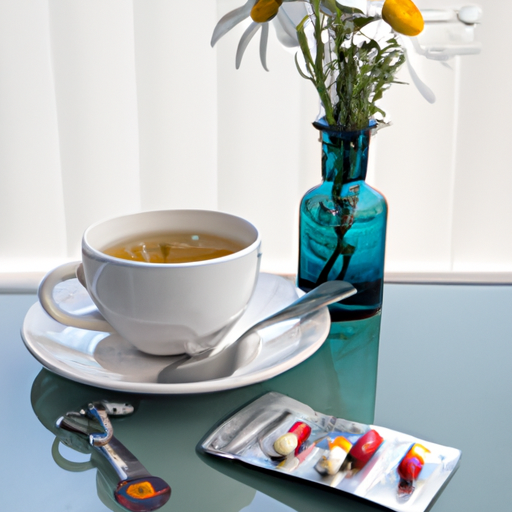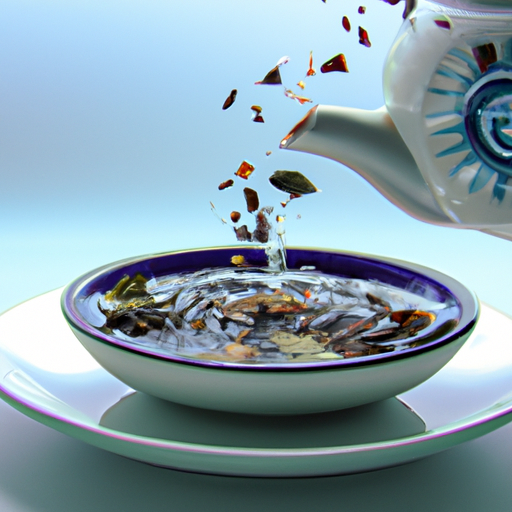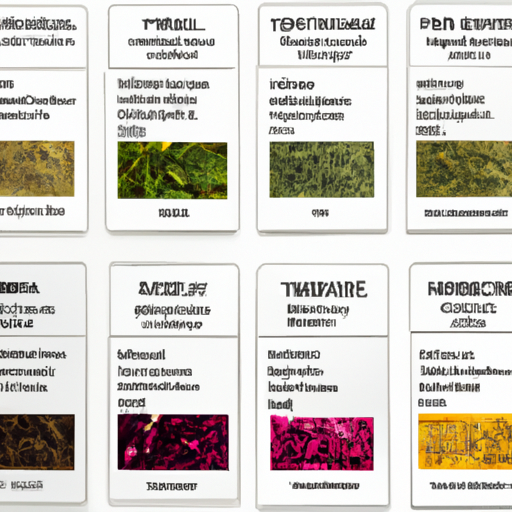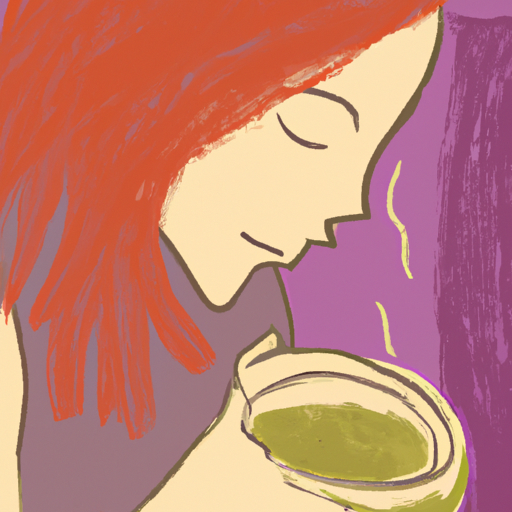When it comes to health, we often hear the phrase ‘An apple a day keeps the doctor away.’ But what about herbal tea? If you’re someone who enjoys a soothing cup of tea to relax, you may be curious about whether it’s safe to drink herbal teas while on blood pressure medication.
Well, I have good news for you. There are several herbal teas that are not only safe to drink but may even have beneficial effects on blood pressure. In this article, we will explore the world of herbal teas and discover which ones are okay to enjoy while taking your blood pressure medicine.
From the soothing qualities of chamomile to the invigorating taste of ginger, we will uncover the top herbal teas that can complement your medication regimen. So, grab your favorite mug and let’s dive into the world of herbal teas for blood pressure management.
Key Takeaways
- Chamomile tea promotes relaxation, improves sleep quality, potentially lowers blood pressure, and has natural relaxation properties.
- Hibiscus tea lowers blood pressure and is rich in antioxidants.
- Green tea is rich in antioxidants, reduces inflammation, lowers blood pressure, and aids in weight loss.
- Peppermint tea aids digestion, relieves symptoms of IBS, and alleviates headaches and migraines.
Chamomile Tea
If you’re looking for a soothing and delicious herbal tea to enjoy while taking your blood pressure medicine, chamomile tea is an excellent choice! Chamomile tea is known for its numerous health benefits, including its ability to promote relaxation and improve sleep quality. It contains compounds that have a calming effect on the body, helping to reduce anxiety and stress levels.
This can be particularly beneficial for individuals with high blood pressure, as stress and anxiety can contribute to elevated blood pressure readings. Additionally, chamomile tea has been found to have a mild hypotensive effect, meaning it may help to lower blood pressure levels.
So, if you’re looking for a natural and enjoyable way to complement your blood pressure medication, chamomile tea is a great option.
Now, let’s explore the benefits of hibiscus tea.
Hibiscus Tea
Hibiscus tea is a topic worth discussing as it’s been shown to lower blood pressure. Research studies have found that regular consumption of hibiscus tea can help reduce high blood pressure, making it a potential natural remedy for hypertension.
Additionally, hibiscus tea is rich in antioxidants, which play a crucial role in protecting the body against free radicals and oxidative stress.
Lowers Blood Pressure
You can’t go wrong with chamomile tea, it’s like a gentle breeze that helps to bring down your blood pressure. When it comes to managing high blood pressure, dietary changes and lifestyle modifications play a crucial role.
Here are four reasons why chamomile tea is a great choice for lowering blood pressure:
-
Natural relaxation: Chamomile tea has calming properties that help reduce stress, a major contributor to high blood pressure.
-
Anti-inflammatory effects: This tea contains compounds that help reduce inflammation in the body, which can contribute to lower blood pressure levels.
-
Improved sleep: Getting enough quality sleep is important for maintaining healthy blood pressure, and chamomile tea can help promote relaxation and better sleep quality.
-
Hydration: Staying hydrated is key for blood pressure management, and chamomile tea provides a hydrating option that is caffeine-free.
In addition to its blood pressure-lowering benefits, chamomile tea is also rich in antioxidants.
Rich in Antioxidants
Indulging in a cup of chamomile tea will transport you to a world of vibrant health, as its antioxidant-rich properties work wonders for your overall well-being. Antioxidants are compounds that help protect your cells from damage caused by free radicals, which are unstable molecules that can harm your body. By neutralizing these free radicals, antioxidants can have a positive impact on your overall health. They have been linked to a reduced risk of chronic diseases such as heart disease, certain cancers, and neurodegenerative disorders. Incorporating antioxidant-rich foods and beverages into your diet, like chamomile tea, can provide numerous benefits for your body. Speaking of antioxidants, let’s now explore the incredible benefits of green tea and how it can complement your blood pressure medication regimen.
Green Tea
Savor the refreshing taste of green tea as it gently intertwines with the effects of your blood pressure medicine. Green tea, known for its numerous health benefits, is rich in antioxidants that can help reduce inflammation and lower blood pressure. Studies have shown that green tea consumption is associated with a lower risk of heart disease and stroke, making it an excellent choice for those taking blood pressure medication.
Additionally, green tea has been found to aid in weight loss by boosting metabolism and increasing fat oxidation. So, not only does green tea complement your blood pressure medicine, but it can also support your weight management goals.
As we transition to the next section, let’s explore the invigorating qualities of peppermint tea.
Peppermint Tea
Ah, nothing beats the invigorating burst of flavor in a cup of peppermint tea! Not only does it taste delicious, but peppermint tea also offers a wide range of benefits. It has been used for centuries to aid digestion and relieve symptoms of irritable bowel syndrome (IBS). The menthol in peppermint tea acts as a natural muscle relaxant, soothing the muscles of the gastrointestinal tract and reducing spasms. Additionally, peppermint tea can help alleviate headaches and migraines due to its calming and analgesic properties. However, it’s important to note that peppermint tea may interact with certain medications, including blood pressure medicine, so it’s always best to consult with your healthcare provider before incorporating it into your routine. With its refreshing taste and numerous health benefits, peppermint tea is a wonderful choice for those looking to enhance their well-being. Now, let’s move on to the next herbal tea: ginger tea.
Ginger Tea
Ginger tea, a warm and soothing beverage, offers a myriad of health benefits that can enhance your overall well-being. This herbal tea isn’t just delicious but also packed with antioxidants and anti-inflammatory properties. Here are four benefits of ginger tea:
-
Boosts Immune System: Ginger tea can help strengthen your immune system, reducing the risk of infections and illnesses.
-
Aids Digestion: Drinking ginger tea after a meal can aid in digestion, reducing bloating and discomfort.
-
Reduces Inflammation: The anti-inflammatory properties of ginger can help alleviate symptoms of arthritis and other inflammatory conditions.
-
Relieves Nausea: Ginger tea is known to ease nausea and morning sickness, making it a great choice for pregnant women.
To make ginger tea, simply steep fresh ginger slices in hot water for 10-15 minutes. You can also add honey or lemon for added flavor.
Transitioning to the next section, lemon balm tea is another herbal option that offers its own unique benefits.
Lemon Balm Tea
After discussing the benefits of ginger tea for individuals taking blood pressure medication, let’s now shift our focus to another herbal tea option: lemon balm tea.
Lemon balm, also known as Melissa officinalis, is a fragrant herb with a long history of medicinal use. Studies have shown that lemon balm tea may help lower blood pressure and reduce anxiety, making it a potentially beneficial choice for those on blood pressure medication.
To make lemon balm tea, simply steep fresh or dried lemon balm leaves in hot water for about 5-10 minutes. You can also add a touch of honey or lemon for added flavor.
Now that we’ve explored the benefits and preparation of lemon balm tea, let’s move on to the next section about rooibos tea, another herbal tea option for individuals taking blood pressure medication.
Rooibos Tea
Let’s now dive into the wonderful world of rooibos tea, a delicious and soothing option for those looking to explore different tea flavors.
Rooibos tea, also known as red tea, is derived from the leaves of the Aspalathus linearis plant, native to South Africa. This herbal tea is renowned for its numerous health benefits, making it a great choice for individuals taking blood pressure medicine.
Rooibos tea is naturally caffeine-free, making it a suitable alternative for those looking to reduce their caffeine intake. It’s rich in antioxidants, such as aspalathin and nothofagin, which help to support overall health and boost the immune system.
Rooibos tea also comes in various flavors and varieties, including vanilla, cinnamon, and honey. These different options provide a delightful and refreshing experience for tea enthusiasts.
So, why not indulge in a cup of rooibos tea today and enjoy its many advantages for your well-being?
Frequently Asked Questions
Can I drink chamomile tea while taking blood pressure medication?
Drinking chamomile tea while taking blood pressure medication may have potential interactions. It’s important to consult with your healthcare provider to ensure there are no adverse effects on your blood pressure management.
Is hibiscus tea safe to consume if I’m on blood pressure medication?
Hibiscus tea may interact with blood pressure medication, potentially affecting its effectiveness. Studies suggest that hibiscus tea may lower blood pressure, so it’s important to consult your healthcare provider before consuming it while on medication.
Can I still enjoy green tea while being treated for high blood pressure?
I can still enjoy green tea while being treated for high blood pressure. Green tea has numerous benefits, including reducing the risk of heart disease and lowering blood pressure. However, there are alternative herbal teas to consider as well.
Is it safe to drink peppermint tea when taking blood pressure medicine?
Peppermint tea offers various benefits such as aiding digestion and soothing headaches. However, it’s important to be cautious when consuming herbal tea while taking blood pressure medicine, as it may have potential side effects.
Can I include ginger tea in my diet if I’m on blood pressure medication?
Yes, it is generally safe to include ginger tea in my diet while on blood pressure medication. Ginger tea benefits include anti-inflammatory properties, improved digestion, and reduced nausea. However, it’s important to monitor for any potential side effects such as heartburn or stomach upset.
Conclusion
In conclusion, there are several herbal teas that are safe to consume while taking blood pressure medicine.
Chamomile tea, known for its calming properties, can help reduce stress and promote relaxation.
Hibiscus tea has been shown to lower both systolic and diastolic blood pressure.
Green tea contains antioxidants that can improve heart health.
Peppermint tea can help relax blood vessels and reduce blood pressure.
Ginger tea has anti-inflammatory properties that can improve blood circulation.
Lemon balm tea has calming effects and can help lower blood pressure.
Lastly, rooibos tea is caffeine-free and can promote heart health.
So, while enjoying a cup of herbal tea, you can also support your blood pressure management.
According to a study published in the Journal of Hypertension, hibiscus tea has been found to lower systolic blood pressure by an average of 7.58 mmHg. This visually represents the potential impact of herbal teas on blood pressure reduction.










